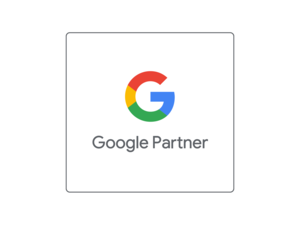Influencer marketing is all the rage in the B2C space, and has been for some time. There are many reasons for the proliferation of partnerships between brands and influencers, mostly due to the size and loyalty of many influencers’ follower bases, and the level of engagement they can create once their content goes viral.
However, B2B brands have traditionally been a little more sceptical about influencer marketing. Firstly, it can be difficult to find people with a large follower base and whose content aligns with the niche topics and products often offered by B2B companies. Then, there is the issue of actually reaching decision-makers and building trust through influencer marketing. This is a significant challenge when purchasing decisions in B2B can involve multi-million budgets, with the risk that wrong decisions might even put someone’s job on the line.
Yet, when you think about it, using influencers in B2B isn’t actually revolutionary. Just replace the word “influencer” with “subject expert” or “thought leader”, and you’ll realise that collaborations between B2B brands and content creators are actually more common – and often more successful – than you’d expect.
So, what makes them work? And how can you replicate the results of B2B brands that have successfully capitalised on the influencer economy?
1. Set clear goals
Knowing what you want to achieve from partnering with an influencer is the first step for a successful campaign. The key question is: why are you looking to work with an influencer to begin with?
Answering this question truthfully will be crucial to helping you choose the right person or organisation to work with. Common reasons can be:
-
The influencer has access to data or information that you need. For example, a not-for-profit could provide relevant data about a specific social or environmental challenge your campaign is trying to raise awareness of, providing up-to-date information that you might not be able to access otherwise.
-
The influencer has a loyal follower base that trusts them and is likely to act on any issue they raise. This could be beneficial if you’re trying to circulate your campaign among a wider audience, ideally an engaged and responsive one.
-
The influencer has skills and/or access to tools that you don’t have. For example, if you’re running an environmental campaign, an academic could help you develop tools to monitor and reduce your organisation’s carbon emissions. This would allow you to have science-backed and accurate data, as well as give you the endorsement of a respected third party.
Once you have established why you decided to collaborate with an influencer, you should be able to set up SMART goals to determine what exactly you’d like to achieve through this campaign.
You can read more here about how to establish the right KPIs for your B2B marketing campaign.
2. Identify the right collaborator
It’s essential to choose who to partner with based on more than the size of their follower base. Select influencers who align with your target audience and brand values, and who regularly share content that is relevant to your industry niche.
For B2B, successful partnerships can be stricken with subject experts such as journalists, academics and research institute leaders. Another opportunity is working with not-for-profits, especially when trying to raise awareness of an environmental or social issue your brand is keen to tackle. Finally, trade associations or even peer organisations can become the ideal partner when you’re trying to address a sector-specific challenge or raise awareness of an issue within your industry.
3. Build authentic relationships
Just asking the influencer to mention your organisation in a piece of content – whether that’s a video or a guest blog post – almost certainly won’t get you the results you’re after.
In B2C, it’s already becoming clear that influencer marketing must be based on more than a quick mention and a video sponsorship. Audiences can quickly tell whether brands and influencers are partnering purely for profitability purposes, or because they truly believe in each other’s work. And in B2B, this is even more evident.
Nurture relationships with relevant influencers beyond individual campaigns. Get familiar with their work (and invite them to get familiar with yours), find opportunities to make the most of each other’s networks, and discuss how you can provide mutual value.
4. Create collaborative content
Developing high-quality content that resonates with audiences is central to any successful collaboration. Explore different formats like guest blog posts, case studies, social media posts, videos, webinars and more.
Consider this as an opportunity to try out new formats in which the influencer might be an expert, and see how your audience reacts. Bonus tip: avoid micromanaging. Give influencers the creative freedom they need to develop content that will appeal to their audience, as well as yours.
5. Assess the results
Finally, it’s important to track and measure the impact of your influencer campaigns. Consider the objectives you set at the beginning of the campaign and review them at regular intervals to evaluate progress.
If you’re not on track to meet them, discuss with the influencer what can be done to improve. If you are, try to pinpoint what helped you get there and what were the main highlights of the campaign.
Collecting this data will be helpful to steer the direction of future campaigns and establish whether collaborations are something you’d like to continue exploring.
While influencer marketing is less used in B2B than B2C, it can definitely provide good opportunities to expand a brand’s reach and build trust. By selecting the right influencers and carefully planning a collaborative campaign, B2B brands can use it as an opportunity to spice up their marketing efforts and differentiate themselves from the competition.
If you’d like to discuss whether influencer marketing can be a good fit for your B2B organisation, get in touch with our team.






 Monia Dal Checco
Monia Dal Checco
 Alexander Costello
Alexander Costello
 Jessica Keynes
Jessica Keynes
 Raven Wheatley-Hawkins
Raven Wheatley-Hawkins






.png)


